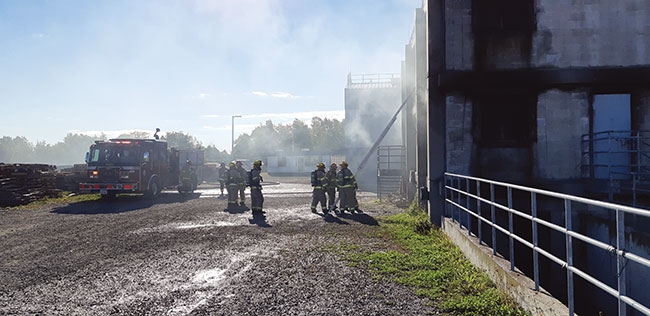
Front seat: January 2019
By Jason Clark
Features Hot Topics LeadershipIt isn’t a secret that there are many different personality types in the fire service. There are members in the service that choose to take a leadership role and there are those that choose to take a supporting role.
 It isn’t a secret that there are many different personality types in the fire service.
It isn’t a secret that there are many different personality types in the fire service.Some fire personnel go with the flow and some demand more from their role and will push the envelope to become better firefighters.
A few people come to the station for the t-shirt or to pad their resume, and that is part of the life cycle of hiring and recruitment.
However, many firefighters come to answer the calls and wear the gear, to do the job as a team and make things better for the department and improve the level of service for the community.
These firefighters come in ready to learn and ask questions and gain the knowledge and training to pave their way to become great emergency responders.
I have crew members that will come in and put in their time and give the department 100-per-cent effort and do what is tasked of them.
I also have crew members that will question everything from why training topics are done at certain times of the year to why we put certain pieces of equipment on a specific truck or even in a cabinet.
All valid questions, in my opinion, as some learn by wanting to know the “why” behind a subject.
I have no problem answering questions or sourcing out answers to the best of my ability and knowledge. If I don’t know an answer, I’ll do my best to find out the information and pass it on. The information may be found in a user manual, standard operating procedure or guideline, or from a chief officer or senior member. I also have no issues asking questions, and have learned there is a right time to question an order or task and a time to hold that question for a later place and time.
We responded to an alarm sounding call at a commercial warehouse a few years back and when the second truck that was due arrived on scene we had no outward signs.
I brought my crew off the truck and went to the door to access the alarm panel and speak with the first due truck officer.
One of my chiefs was speaking with the keyholder and I walked past them. As I was approaching the front door, my chief yelled at me to mask up before I went in with the crew.
I thought this was a bit over the top for an alarm sounding call, so I yelled back something to the effect, “Why do you want us to mask up, the alarm panel is right there?”
The awkwardness of my question couldn’t have been exposed in a more timely fashion when an employee came out the front door wearing what resembled a Class C hazmat setup with a respirator, toting a machine that was being used to fumigate the building for insects.
My question was unnecessary, as the chief had more information than I did.
For those who are new to their role as a formal leader in the fire service as a company officer, you will be questioned on various topics in the service or in your station.
Sometimes the motives and intentions of the person asking the question can be valid. There are also times when the question could be to test your knowledge or how much you’ve prepared for the role you are in.
I was 29 years old when I became an acting captain and started to ride up front. One of my biggest fears besides not being able to perform as a leader was not being knowledgeable and looking unprepared.
I encourage everybody to ask questions at any level in their fire service career.
Questions start conversations that can lead to information that allows us to become better fire service members. Questions can also expose weaknesses in the tactics of our pre-plans in reference to the “what-if” scenarios.
As officers, this forces us to stop and think of why it is done a specific way and ponder whether there may be a better way to accomplish the goal at hand.
There is an intention behind every question asked. It could be to gain knowledge, start a conversation or even test someone’s answer or preparedness.
Both firefighters and officers should have the sense to ask questions when the time is right or if something doesn’t seem to make sense.
We all need to learn from those questions and always remember to pass the needed information on to your crew members.
When we do respond, we may be sitting in different seating positions, but we are all going to the same call.
Jason Clark has been a volunteer firefighter in southwestern Ontario since 2007. Having recently made the transition to captain from firefighter, he has a new perspective on riding in the front seat. Contact Jason at jjdclark@rogers.com
Print this page